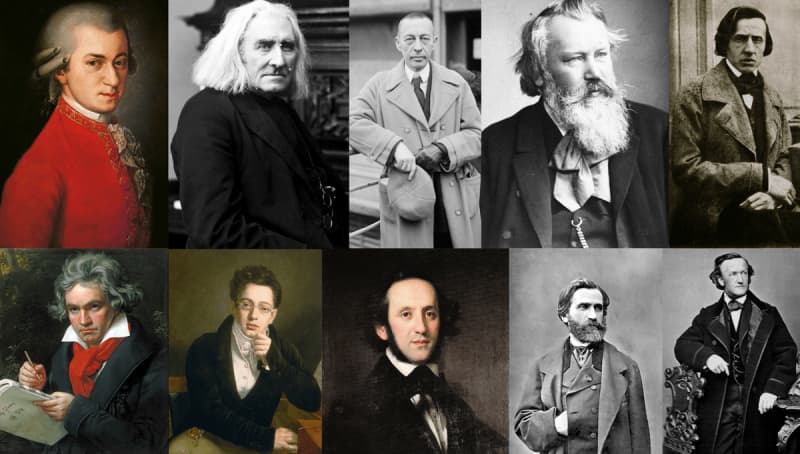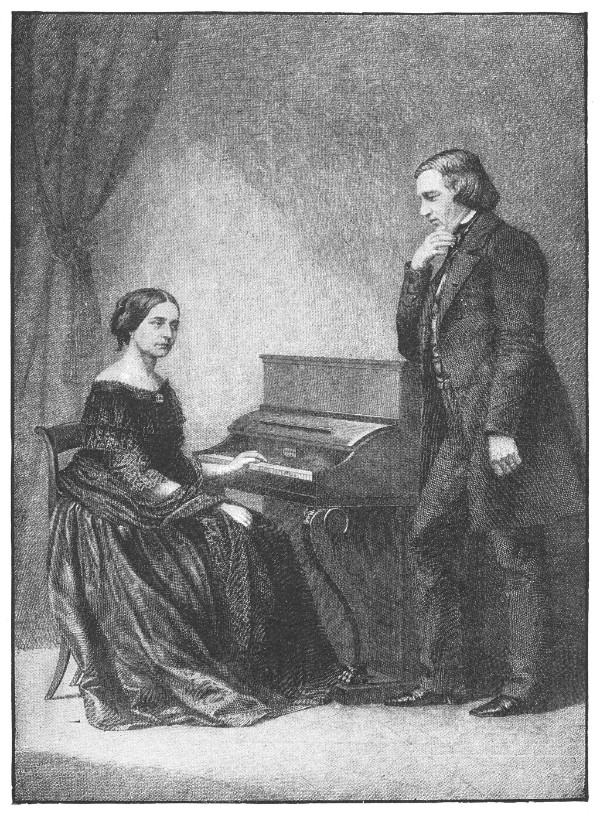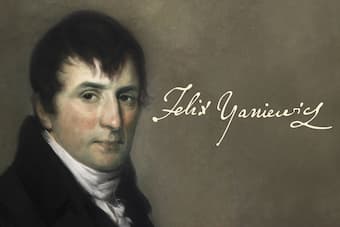
Felix Yaniewicz portrait and signature
Who was Felix Yaniewicz, and why is he important in the history of Scotland’s cultural life?
This fascinating story of music and migration begins with the discovery of a beautiful square piano, bearing the signature of Felix Yaniewicz. Found in a dilapidated state in a private house in Wales, it was “rescued” by a piano restorer and a few years later the fully restored instrument was put up for sale. At this time, it was spotted, by chance, by a descendent of Yaniewicz, his great-great-great-great-granddaughter, Jose Dixon, who recalls a portrait of Felix Yaniewicz hanging on the wall of her grandmother’s cottage, “a handsome, enigmatic presence with more than a touch of Mr Darcy.”
At the time she knew little about his life, but the square piano piqued her interest and she was inspired to find out more about her musical ancestor. The colourful story which unfolded features a Polish king, Haydn and Mozart, both of whom Yaniewicz encountered in Vienna, escape from the French Revolution, and a lost Stradivarius violin.
Steven Devine playing Haydn on Yaniewicz & Green square piano
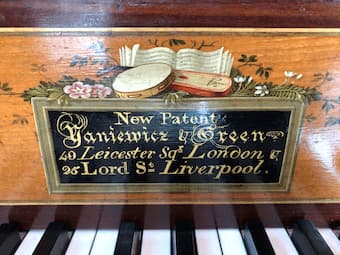
Felix Yaniewicz & Green Square Piano detail
Born Feliks Yaniewicz in 1762 in Vilnius (then part of the Polish-Lithuanian Commonwealth), he enjoyed a cosmopolitan musical career in Europe before arriving in London around 1790. He toured the country as charismatic performer and impresario, giving concerts in fashionable cities like Dublin and Bath, and eventually made his way to Edinburgh where he lived from 1815 until his death in 1848. It was in Edinburgh that he made a lasting impression on Scotland’s musical culture, a legacy which remains to this day.
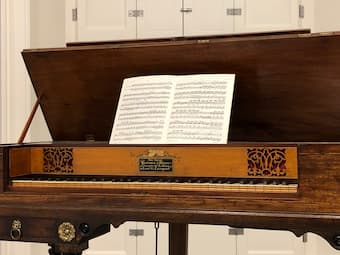
Yaniewicz piano with music
It was his boldest plan to date – the founding of a music festival in the city. Contemporary accounts reveal the ambitions of the festival and the extraordinary amount of music performed over just a few days – major oratorios by Haydn and Handel, Yaniewicz’s own violin concertos, Haydn symphonies, operatic arias and more. Amongst the instigators of this first Edinburgh music festival was one Mme Catalani, an opera singer and leading diva of the day, with whom Yaniewicz had a long-standing association.
Feliks Janiewicz: Violin Concerto No. 3 in A Major (Zbigniew Pilch, violin)
This summer and autumn Yaniewicz’s life and musical legacy is being celebrated in an exhibition at The Georgian House in Edinburgh, and a series of accompanying events including lecture-recitals, illustrated talks, and concerts by pianist Steven Devine and soprano Kate Semmens. A number of the events take place during this year’s Edinburgh International Music Festival.
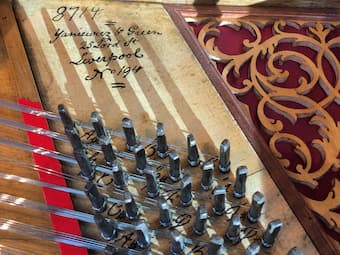
Yaniewicz signature on piano
The exhibition features the Yaniewicz and Green Square Piano together with a unique collection of other musical instruments, portraits, manuscripts, silver and gold personal possessions, letters and autographs, many of them passed down the generations in his surviving family, and almost none of them seen in public before. Together, these will offer fascinating insights into the career of this charismatic performer, composer, impresario and musical entrepreneur, who left a lasting mark on Scottish musical culture.
This exhibition has been organised by The Friends of Felix Yaniewicz, of which violinist Jennifer Pike is patron, in collaboration with the Adam Mickiewicz Institute and co-financed by the Ministry of Culture and National Heritage of the Republic of Poland.
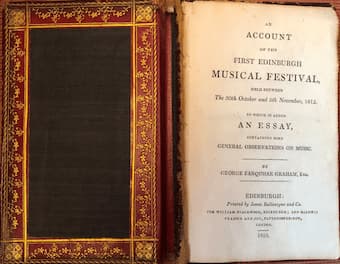
First Edinburgh Festival
Barbara Schabowska, Director of the Adam Mickiewicz Institute, says: ‘The figure of Felix Yaniewicz, an internationally renowned Polish-Lithuanian violin virtuoso, is a perfect example of how remarkably universal the language of music is. The exhibition, celebrating his fascinating travel-filled life, is a chance to initiate transnational dialogue – not only between Scotland and Poland, but also with everybody who finds themselves moved by Yaniewicz’s music.’
The exhibition at The Georgian House, Edinburgh, runs from 25 June to 22 October 2022. Full details of all events, and more about Felix Yaniewicz, his life and music, can be found at: https://www.yaniewicz.org/
For more of the best in classical music, sign up to our E-Newsletter

